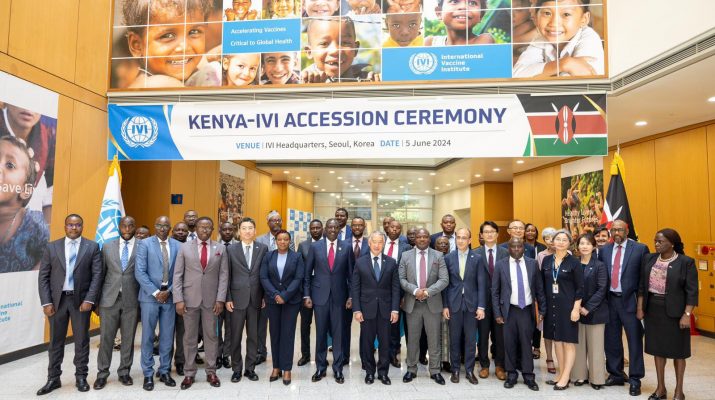By Marline Atieno
Kenya has officially joined the International Vaccine Institute (IVI), a significant step in the nation’s ongoing efforts to strengthen whats its public health infrastructure and address persistent vaccine shortages.
The International Vaccine Institute (IVI) is a non-profit intergovernmental organization founded in 1997 as a United Nations Development Programme (UNDP) initiative.
The role of the organisation is to ensure vaccines are accessible and affordable for everyone.
The IVI, an international organization dedicated to the development, production and distribution of vaccines, particularly for low- and middle-income countries, will now extend its resources and expertise to Kenya.
This partnership is expected to enhance Kenya’s capacity to combat infectious diseases, including ongoing challenges with diseases such as cholera, malaria and measles.
The partnership with the IVI is expected to play a crucial role in mitigating these challenges.
On Wednesday, Ruto announced that the IVI has pledged to set up a country and project office in Nairobi, which will serve as the organization’s regional headquarters.
“Increasing vaccine availability will improve our primary healthcare services and disease prevention efforts,” the president stated.
Kenya has been engaging in discussions with IVI to develop effective and affordable vaccines.
Last November, Health Cabinet Secretary Susan Nakhumicha met with IVI’s top leadership, including Director General Jerome Kim, at the World Bio Summit in Seoul, where Kenya agreed to host IVI’s continental office.
IVI has also collaborated with the Kenya BioVax Institute to support technology transfer and manufacturing.
The Kenya BioVax Institute (KBI) is the state agency leading the country’s initiative to locally manufacture human vaccines.
This institute aims to tackle vaccine-preventable diseases during outbreaks, epidemics or pandemics.
This development comes at a crucial time as Kenya struggles with a significant vaccine shortage.
Recent months have seen a marked decline in vaccine availability, particularly for essential immunizations such as DPT (diphtheria, pertussis and tetanus), polio and measles.
Health facilities across the country have reported diminishing stocks, leading to disruptions in routine immunization programs and a heightened risk of disease outbreaks.

